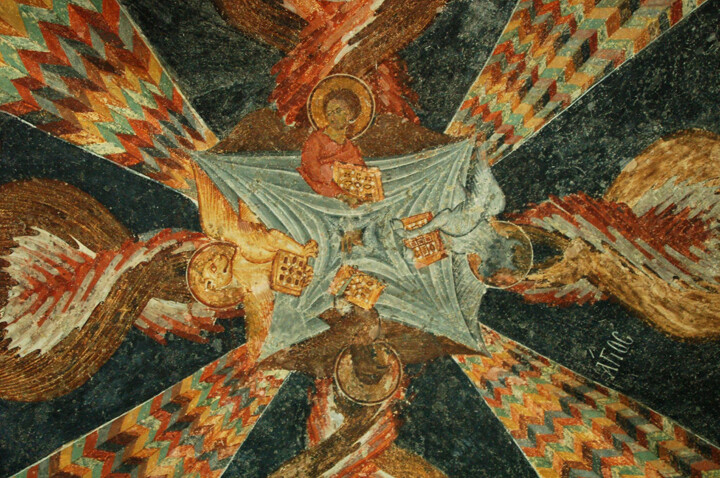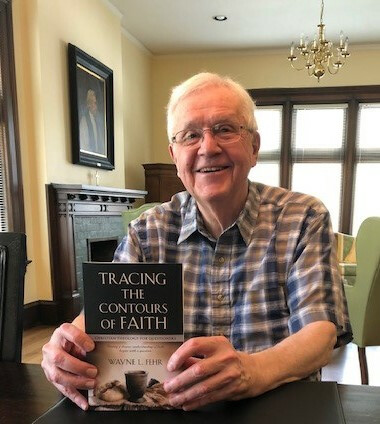Ask a Theologian: Revelation

Dear Theologian,
My question is about the meaning of the word “revelation.” It occurs in one of our Sunday readings: “The mystery was made known to me by revelation.... In former generations this mystery was not made known to humankind, as it has now been revealed to his holy apostles and prophets by the Spirit.” (Eph 3) Just what does the term “revelation” mean? Is it important for our life of faith?
~Not Yet Enlightened
Dear Not Yet,
The English word “revelation” translates the Greek word apokálypsis, which literally means the “uncovering” or “disclosing” (of something that had been hidden). This noun or its verb form occurs in a number of places in the New Testament. It always has to do with the disclosure or unveiling of the divine or of some aspect of the divine will.
On the one hand, God is absolute Mystery, utterly beyond human comprehension. On the other hand, God graciously comes near to us in and through our experience of the created world. Christians as well as Jews believe that God takes the initiative in establishing a relationship with human beings. In this view, it is not really a matter of our “search” for God. Rather, in the words of the great Jewish scholar Rabbi Abraham Heschel, it is “God in search of man.”
In the revelatory experience, writes Anglican theologian John Macquarrie, “it is as if the holy ‘breaks in’ and the movement is from beyond man toward man.” [1] What one comes to know through the revelatory experience, therefore, has a gift-character. He goes on to note that almost anything in the world can be an occasion for revelation—natural phenomena, for example, or historical events and personal relationships.
But there is a paradox involved in speaking of revelation. For God, though in some sense “disclosed” through the revelation, still remains utterly “hidden” and beyond human grasp.
In the Hebrew Scriptures, it is said that no one can “see the face of God” without being destroyed (Ex 33:20). The “glory” of God rests upon some created reality, and—as it were—shines through it. (For example, “The glory of the Lord settled on Mount Sinai... like a devouring fire on the top of the mountain in the sight of the people of Israel.” Ex 24:16-17) One sees the “glory,” but cannot see God directly.
Consider the story of the “transfiguration” of Jesus (Lk 9:28-36). The glory of God streams out through Jesus, changing his appearance into dazzling light. Then the cloud (symbol of God’s hiddenness) covers them, and they feel a holy fear. What the voice (of God) says to them is significant: “This is my beloved Son. Listen to him.” When they look up they see “only Jesus”—that is, only the familiar, very human reality of their teacher and friend. He is the one to whom they are to pay close attention, in order to know the hidden God.
The human recipient of God’s self-disclosure receives the gift through his or her own imagination and culture. This is especially true of the one who receives what we might call an “original” or “originating” revelation (such as Moses, for example). Macquarrie uses the term “primordial revelation” for this kind of revelatory event, since it becomes foundational for all further revelatory experiences in the cultural tradition that stems from it.
The human expression of the primordial revelation, handed down through Scripture and tradition, then becomes for other human beings an occasion for their own revelatory experiences. In their own way, they “repeat” and experience afresh what was once given. This way of looking at the matter helps to understand how Scripture functions in the faith-life of present-day Christian believers.
A revelatory experience is “given” graciously by God. It is the work of the Holy Spirit interacting with human consciousness. On the other hand, the openness or receptivity of the human person is also a factor in what is experienced.
For us Christians, the greatest revelation is Christ himself. Brother and Lord, Jesus abides forever as completely human and completely divine. To recognize him as the Christ is always a revelatory experience, whenever and as often as it occurs. When the disciple Simon confessed Jesus as the Christ, Jesus replied: “Blessed are you, Simon son of Jonah! For flesh and blood has not revealed this to you, but my Father in heaven.” (Mt 16:17, emphasis added). And the apostle Paul said of his own discovery of the Lord: “I received [the gospel] through a revelation of Jesus Christ... God, who had set me apart before I was born and called me through his grace, was pleased to reveal his Son to me.” (Gal 1:12,15, emphasis added).
Faithfully,
The Theologian
[1] John Macquarrie, Principles of Christian Theology, 2nd ed. (New York: Charles Scribner’s Sons, 1977), p. 7.



